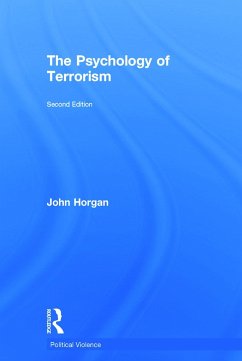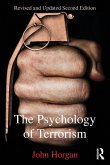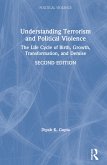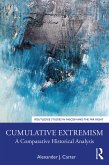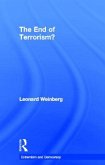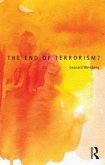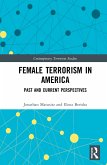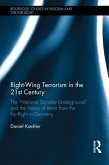The book, written by a leading scholar, presents a critical analysis of our existing knowledge and understanding of terrorist psychology, and in doing so, highlights the substantial shortcomings and limitations of the nature and direction of current research.
Hinweis: Dieser Artikel kann nur an eine deutsche Lieferadresse ausgeliefert werden.
Hinweis: Dieser Artikel kann nur an eine deutsche Lieferadresse ausgeliefert werden.
'John Horgan's The Psychology of Terrorism is one of the best applications of a social science discipline (in this case, psychology) to explain the drivers that motivate individuals to become terrorists, function as terrorists, and, in ideal cases, disengage from terrorism. Also included are some of the best treatments in the academic literature on how to define terrorism and conduct academic research on terrorism.' - Foreword Magazine
'The structure is clear and sensible and the text should be of value to both undergraduate and postgraduate courses. I recommend it strongly.' - Psychology XIX
'The structure is clear and sensible and the text should be of value to both undergraduate and postgraduate courses. I recommend it strongly.' - Psychology XIX
'John Horgan's The Psychology of Terrorism is one of the best applications of a social science discipline (in this case, psychology) to explain the drivers that motivate individuals to become terrorists, function as terrorists, and, in ideal cases, disengage from terrorism. Also included are some of the best treatments in the academic literature on how to define terrorism and conduct academic research on terrorism.' - Foreword Magazine
'The structure is clear and sensible and the text should be of value to both undergraduate and postgraduate courses. I recommend it strongly.' - Psychology XIX
'The structure is clear and sensible and the text should be of value to both undergraduate and postgraduate courses. I recommend it strongly.' - Psychology XIX

